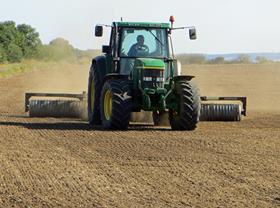
A consortium of scientific research and academic institutions has come together to identify solutions to tackle climate change in the agri-food sector.
The SHAKE Climate Change programme has been designed to attract entrepreneurs or start-ups who have developed early-stage science or tech-based ideas that can have a significant impact on climate change, as well as form the basis of a sustainable and socially responsible business within the sector.
Ideas can relate to any point in the food production chain, which contributes more than a quarter of global climate change emissions.
Over the nine-year programme, 15 successful ventures will receive up to a total amount of £140,000 each, plus two years of training and mentoring from leading experts in business and science, to help further develop their ventures.
This summer, approximately 30 entrepreneurs or teams will be selected to participate in a one-week residential intensive workshop culminating in them pitching their ideas to a panel of experts.
Of this initial cohort, around ten entrepreneurs and teams will be chosen for a further three-months of intense training to build their ventures.
Around five ventures will then be recommended for up to a total amount of £140,000 each to develop their businesses under continual mentorship for a further eight to 12 months, followed by aftercare support.
Two additional similar waves will follow with the programme continuing to support entrepreneurs until 2027.
Shake Climate Change is funded by the Societe Generale UK Foundation, the independent corporate foundation of the UK branch of Societe Generale Group. Education and employability are the two key pillars of the Group’s Citizenship programme, with promoting innovation and supporting entrepreneurs central to its wider strategy.
Professor Angela Karp, director of science innovation, engagement and partnerships at Rothamsted Research, who co-developed the programme with the partners, said: “There has been a lot of publicity recently around the environmental impact of eating meat – but the contribution of agri-food to our climate footprint is so much more complex and wider than that.
“Fossil fuel use for farm machinery, transport, refrigeration, fertiliser production all contribute. The way soils are managed can have a huge effect – not just on CO2 or methane, but nitrous oxide emissions too. Then there’s the whole issue of how agricultural wastes can be reduced or recycled, moving towards a circular economy.
“In many people’s eyes, food and farming are fast becoming climate villains, but there is huge potential for this sector to ultimately become the heroes. There are so many possible angles you can attack this problem from.”



